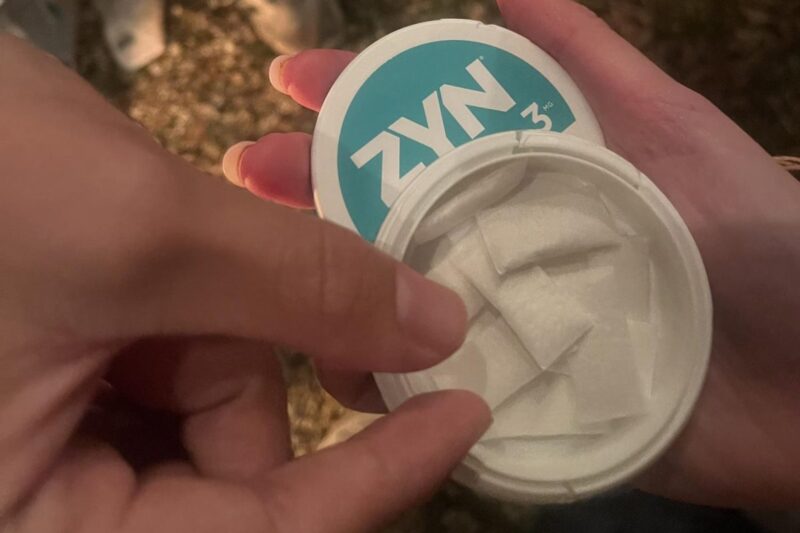The Zyn Craze: Nicotine’s New Disguise
Share
Explore Our Galleries
Breaking News!
Today's news and culture by Black and other reporters in the Black and mainstream media.
Ways to Support ABHM?
Anissa Durham, Word in Black
Nicotine’s new face: Zyn, a pouch product has been trending on social media. But is it a health hazard for young people?

When it comes to nicotine, the impact on health — good or bad — depends on which researcher you’re talking to. Enter Zyn, a nicotine pouch that has been on the market for about a decade but recently exploded in popularity on social media. This isn’t your traditional smoke break; instead, it’s a discreet pouch tucked under the lip, slowly releasing nicotine into the system.
So, while public health experts debate whether getting a dose of nicotine through a pouch is simply substituting one unhealthy habit for another, there’s another danger lurking: The way nicotine-based products are often marketed to children and teens.
On TikTok, videos with teens using Zyn have racked up millions of views, even though it’s illegal to sell it to minors. Nicotine, the addictive drug in tobacco, has long been reported to increase the risk of cancer, heart disease, stroke, and birth-related illnesses.
Why this matters: Black adults face disproportionate rates of cancer, cardiovascular disease, depression, and stroke, and 87% of adults tried their first cigarette by age 18. Children and teens are incredibly vulnerable to addictive drugs. But instead of centering the debate on how harmful nicotine is — what’s actually leading kids to get ahold of these drugs?
For a more positive spin on what Black kids are up to, explore this exhibit about a teenage activist.
Find more Breaking News here.









Comments Are Welcome
Note: We moderate submissions in order to create a space for meaningful dialogue, a space where museum visitors – adults and youth –– can exchange informed, thoughtful, and relevant comments that add value to our exhibits.
Racial slurs, personal attacks, obscenity, profanity, and SHOUTING do not meet the above standard. Such comments are posted in the exhibit Hateful Speech. Commercial promotions, impersonations, and incoherent comments likewise fail to meet our goals, so will not be posted. Submissions longer than 120 words will be shortened.
See our full Comments Policy here.